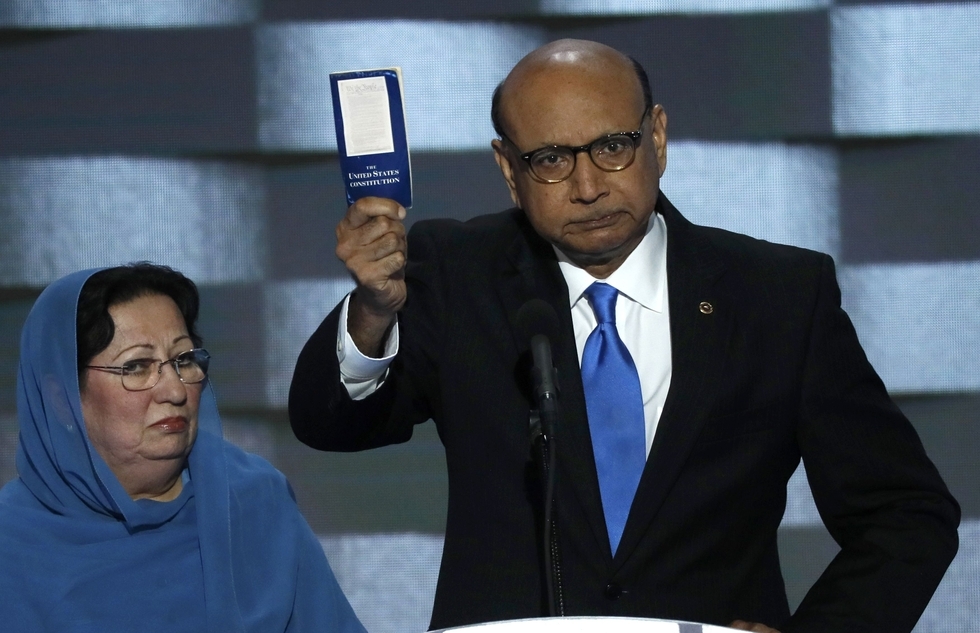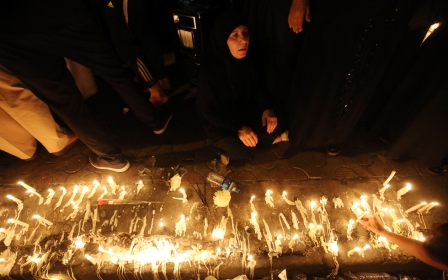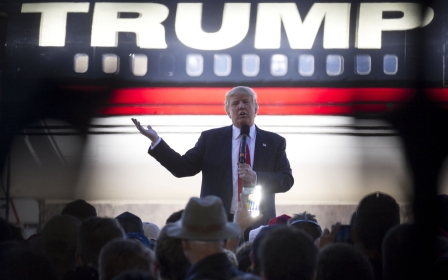The Khans - and what makes a good American Muslim

When Khizr Khan and his wife Ghazala, the Pakistani-American parents of slain US Army Captain Humayun Khan, mounted the podium at the Democratic National Convention, they gave Hillary Clinton’s campaign the one thing it needed the most: a heartfelt blow to the scaremongering tactics of Donald Trump’s election campaign.
Trump’s appeal is rooted in the perception that he is an honest, technocratic outsider who calls it like he sees it. He is - at least to his supporters - the poor man’s billionaire, the strongman that can save America from the onslaught of Islamic terrorism. So, he was easily stumped when Khizr Khan offered to lend him his copy of the US constitution, to help him better appreciate the American-ness of their sacrifice, for a country they so clearly and dearly love.
Trump’s reaction was typical. First he demeaned, then he deflected: he, too, had made great sacrifices for his country by creating thousands of jobs, and how come Ghazala hadn't said anything? Could it be that she was barred from speaking because of her husband’s religion?
She later wrote her own response.
In the thralls of choosing between their support for Trump, and respecting the ultimate symbol of American heroism (the dead soldier and his family), senior Republican leaders chose the latter and issued apologies. To the Democrats, this humiliating blow spells a major victory – but little attention has been paid to the implied standards of a "good Muslim" in Khan’s speech.
The speech made by Khizr, and the subsequent opinion piece by Ghazala, was about refuting the otherness of American Muslims. In their grief, they embodied the sadness of a country that feels as if it has veered too far off from the ideals of freedom, equality and democracy that it was founded on. It brought to the forefront a sense that Muslims are an integral part of American society. That just like everyone else, Muslim-Americans also serve the country and die for it.
However, just as the deeply problematic implications of Trump’s "heart-felt" rhetoric is often left unchecked by his supporters, the emotional sway of Khan’s speech has muffled some necessary scrutiny.
According to Raza Rumi, the Pakistani journalist who escaped an assassination attempt in 2014 and subsequently moved to the US, “Khan's dramatic speech at DNC challenged Trump and his supporters and, in a populist sense, has emerged as a blow to the Trump campaign.
"But the deeper issue here is that why, in a country of immigrants, one particular group has to prove its allegiance by citing the 'sacrifice'. That somehow bolsters the Islamophobic worldview that those Muslims who may not have sacrificed or passed an allegiance test may somehow not be worthy citizens. I am proud of the Khans for speaking their minds, but the reactions and framing of their patriotism is a little disquieting.”
Most of us cannot even begin to fathom the pain of burying one’s own children, and it is genuinely tragic that the Khans lost their son in a war that in hindsight seems to have been so tragically unnecessary. However, it is alarming that the ideal of a good Muslim American being presented here is the kind who supports US militarism and essentially, fights to serve it.
Inadvertently, this paints the wrong idea about the "right" kind of Muslim as someone who is expected to prove his or her loyalty to their country by supporting and participating in the wars it exports to other Muslim countries under the pretext of civilisational ideals, like freedom and democracy.
It is worth asking if the celebration of the "Good Muslim" can be extended to include those American Muslims who do not support the Iraq war, who don’t feel it necessary to prove their American-ness by participating in patriotic spectacles. How does Shahjehan Khan, an American Muslim and the guitarist of the Desi-American punk-rock band The Kominas, a vocal critic of US militarism and a Muslim, fit into this narrative, when he says: “I am vehemently opposed to most American military intervention, especially drone warfare in Pakistan. I do not subscribe to the idea that one needs to be a 'patriot' in order to be a decent human being. The scariest part of being a non-white American is that this sentiment is a complex one, and complex thought is on the losing side of American history.”
This citizenship test lesson – as one journalist called it – was echoed in Bill Clinton’s speech when he said, "If you're a Muslim and you love America and freedom and you hate terror, stay here and help us win and make a future together, we want you." The message here is simple: if you are an Muslim American, then your American-ness is conditional upon on how much you are willing to conform to our establishment interests.
Other Americans are not subjected to this citizenship test. The infamous Westboro Baptist Church - a family cult that routinely pickets the funerals of dead soldiers, rejoicing at the site of each decorated, medallion coffin, believing it to be divine punishment for America's attitude towards homosexuals – even they have an unconditional right to attack the record of America's fallen, and aren't under the scrutiny as Muslim Americans. They don’t stop being American because they support anti-LGBT laws, but somehow ordinary Muslims are subject to this citizenship litmus test.
This shows how deeply ingrained this suspicion around Muslim loyalty actually is. Even the Democrats perceive American Muslims as outsiders who have to prove their "undivided loyalty" by sacrificing something or someone in the way of US militarism. But if undivided loyalty is what we consider to be virtuous, and war is what we glorify, then we infringe upon the right of American Muslims to be complicated in any way they wish and still be able to call themselves American.
When Khizr Khan raised his copy of the constitution against Trump’s bigotry, the couple's candid grief and restrained anger provided much needed grace in an election marred by the excessive ugliness of the Trump campaign. And they deserve every bit of praise for reminding their fellow Americans that the "other" is in fact "within", and a refutation of the unwarranted fear of ordinary people whose contributions are often overlooked, whose flaws are always exaggerated, and whose sacrifices are routinely exiled from our historical consciousness by the practitioners of political opportunism.
However, the definition of the "good" Muslim that emerged out of the convention needs to be challenged, for it holds American Muslims to an unfair standard of patriotism.
This over-simplification of Muslim identity further signifies the gap between Muslim communities and establishment ideals. Shahjehan knows that such identity tests are often used to dismiss the diversity of inter-ethnic voices: “The media is obsessed with this notion of the ‘good/cool Muslim punk rock band’ that is going to set those bad Muslims straight. Half of us weren’t even Muslims. It gives people the wrong idea about who we were, why we matter, and what we are trying to say.”
Khizr Khan is one voice – one profound, powerful, unshakeable voice. But there are millions of others waiting to be heard.
- Farhad Mirza is a freelance journalist currently based in Italy. He is a regular contributor to various newspapers and magazines in Pakistan, Kosovo and the UK.
The views expressed in this article belong to the author and do not necessarily reflect the editorial policy of Middle East Eye.
Photo: Khizr Khan, whose son Humayun Khan died serving in the US Army in Iraq, offers to loan his copy of the Constitution to Donald Trump, as he speaks on the last night of the Democratic National Convention in Philadelphia (Reuters).
This article is available in French on Middle East Eye French edition.
New MEE newsletter: Jerusalem Dispatch
Sign up to get the latest insights and analysis on Israel-Palestine, alongside Turkey Unpacked and other MEE newsletters
Middle East Eye delivers independent and unrivalled coverage and analysis of the Middle East, North Africa and beyond. To learn more about republishing this content and the associated fees, please fill out this form. More about MEE can be found here.





